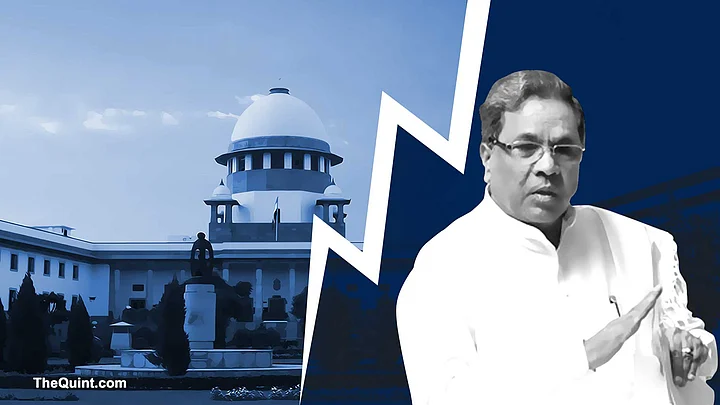The Cauvery Dispute- 2016
- Karnataka government & legislative council has refused to release water for TN.
- Legal experts on Karnataka side believe that “to be unable to do the impossible is not contempt of court”.
- The Karnataka government may also approach the President with its plea.
- Repeated letters to the Prime Minister have yielded no result.
- If the state government is thought to be functioning against the Constitution, president’s rule could be imposed.
- SC will hear the matter on 27 September.
The Karnataka legislative council has passed a resolution against releasing Cauvery water to Tamil Nadu. The legislative assembly has reiterated that in a distress year with scanty rainfall, the release of water for crops in Tamil Nadu would mean no drinking water for people in Karnataka.
On 20 September, Supreme Court had directed the state to release 6,000 cusecs of Cauvery water per day to Tamil Nadu. The apex court order was followed by an all-party meet and in Karnataka and the state government announced it will defer the release of water.
The passing of the legislative resolution reinforces the government’s decision.
For ordinary people, this is a clear defiance of the Supreme court order, for lawyers and constitutional experts, it is a clever move by the government to project the decision as a legislature-judiciary confrontation.
One may read this either way, but it is clear that Karnataka is headed towards days of uncertainty. The interpretation of the resolution will decide the way forward.
It is not contempt of the court if legislation offers its opinion on the abidance of a court order or if the judgement is unimplementable. Contempt is only when its wilful disobedience. Also, abiding the court order is the responsibility of the government, not legislature. If somebody approaches the court saying that there has been a contempt of court on the part of the government then the judicial process with begin, considering the actions of government and legislature.Subhash Kashyap, Constitution Expert
Karnataka government and its legal advisers have crafted their moves well. A carefully worded resolution that repeatedly mentions Karnataka’s ‘acute’ water crisis says;
The above resolution is unanimously passed after carefully considering the needs of the inhabitants of the state of Karnataka, whose interests are likely to be gravely jeopardised if water in the four reservoirs is in anyway reduced, other than for meeting the drinking water needs.
The Cauvery issue has seen multiple turmoils in the past between courts, Karnataka, Tamil Nadu and central government. Previous prime ministers including Atal Bihari Vajpayee, Indira Gandhi, Manmohan Singh and HD Deve Gowda have intervened to avert the crisis.
This year, Karnataka CM Siddaramaiah has written as many as eight letters to the PM but has received no response.
As the head of a federal structure, it is completely a political decision or Prime Minister’s administrative judgement to intervene or stay away from such matters. Of course if a situation arises where it is felt that the state government is not functioning as per the code of the Constitution, under his leadership, the council of ministers can approach the president for implementing president’s rule.Subhash Kashyap, Constitution Expert
While the legal experts do not overrule the chances of the state government itself approaching the President, yet another call to the Prime Minister for intervention may also happen.
Meanwhile, speaking to the media, Brijesh Kalappa, the legal adviser to the Karnataka government, hinted that the government is preparing itself for various options.
It is an extraordinary situation which calls for extraordinary measures and the government will explore every extraordinary measure possible… We’ll have to see how the Supreme Court reacts to it. We will also have to see how we can convince the top court that this is an impossible order to implement.Brijesh Kalappa, Legal Advisor to the Government of Karnataka
In March this year, Punjab government, in defiance to Supreme Court, passed a resolution against Sutlej-Yamuna Link Canal construction. The matter is pending in Supreme Court.
In the Cauvery issue, all eyes are now set on Tamil Nadu and the Supreme Court which will hear the case on 27 September.
A bigger setback for Karnataka however, is the court’s order for setting up Cauvery Management Board, which is to be formed by the Centre in the coming weeks. Once the board is in place, the state would lose all power over its reservoirs. This is the one thing that Karnataka has feared and fought against for decades.
(At The Quint, we question everything. Play an active role in shaping our journalism by becoming a member today.)
